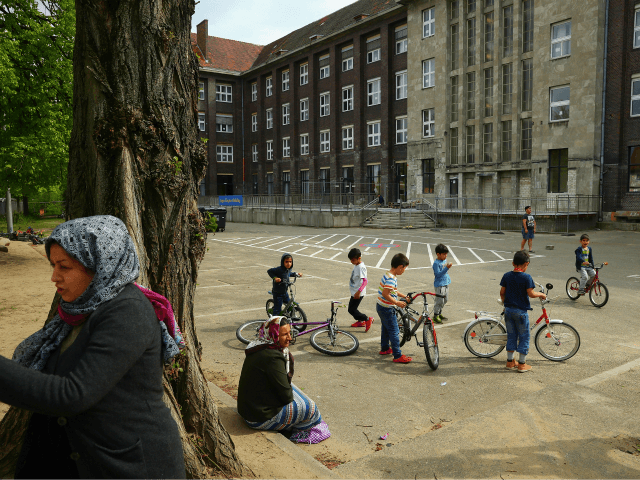The rise in the number of children needing state welfare in Germany is being primarily driven by migrants arriving from the Middle East and from poorer European Union nations.
While one in six recipients of the Hartz IV benefits under three are foreign-born, the number of native German children living on state assistance is decreasing, reports Der Spiegel.
According to the Federal Employment Agency (BA), 2.052 million children and adolescents under the age of 18 live in families dependent on Hartz IV because of unemployment or low wages. This is 100,634 (5.2 per cent) more than in June 2016 and eight per cent more than five years ago.
Officials said that the massive influx of asylum seekers in the country was a “major factor” in the rise, as unemployed migrants wait for their asylum applications to be processed or to complete integration and language courses, with job centres usually paying for their upkeep.
Majority Of Millions Of Migrant Arrivals Unemployable, Just 54 Have Jobs With Top Firms https://t.co/eabdFZ6Hg8 pic.twitter.com/CJPjkJPs0t
— Breitbart London (@BreitbartLondon) July 7, 2016
From between June 2013 and June 2017, the number of Hartz IV recipients aged under 18 from Syria increased from 7,659 to 205,200 – a rise of 2,579 per cent. The corresponding number of young Afghans quadrupled during this period to 37,061, and the number of young Iraqis rose two and a half times to 51,055.
According to the German government, in 2016 alone, Germany’s entire budget surplus went to migrant costs, with the federal government paying out €21.7 billion on migrants. Researchers have also estimated additional costs including €3 billion a year to educate asylum seekers, the majority of which are under 25.
Other studies have also debunked the notion that migrants would impact the German economy in a positive way with researchers finding that mass migration from the third world would not produce readily-trained doctors and engineers, but would provide “a reservoir for low-cost labour” and would hurt long-term economic growth.
Migrants from poorer EU nations, who can travel freely around the bloc thanks to Freedom of Movement rules, have also contributed to the rise in children needing state support in Germany.
Notably, Bulgarian children’s needs for state assistance was five times higher in 2017 than it was in mid-2013 – bearing in mind that Germany was able to put in place work restrictions for Bulgarians until January 2014.

COMMENTS
Please let us know if you're having issues with commenting.